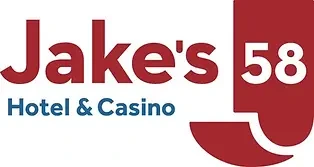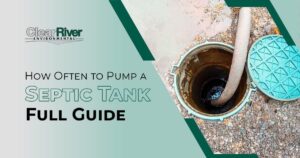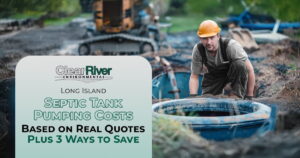Cesspool and Septic Environmental Services in Long Island
Stop worrying about septic backups, cesspool odors, and contaminated water threatening your family’s safety. Clear River Environmental solves these problems fast with the best professional environmental services near you. Our environmental service technician protects your property and peace of mind with reliable solutions that actually work every time.

WHO WE ARE
Environmental Remediation Company You Can Trust
We started Clear River Environmental to provide Long Island families with the honest environmental solutions they need.
System
Installation
We install compliant environmental systems for you.
Emergency
Repairs
Your damaged systems get an immediate professional repair.
Regular Maintenance
We maintain your systems before problems occur.
Complete Environmental Services Building
Long Island Communities Safer
Plumbing Services
Your home’s plumbing systems need professional care to prevent costly water damage. We repair leaks, install fixtures, and maintain pipes with guaranteed results.
Sewer and Drain Services
Blocked drains and sewer backups create health hazards immediately. Our environmental service technician clears blockages and repairs damaged sewer lines safely and efficiently.
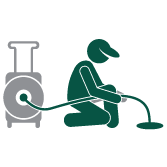
Cesspool and Pumping Services
Regular cesspool pumping prevents system failures and property contamination. We locate, inspect, pump, and maintain cesspool systems to protect your family’s health completely.
Septic Installation and Repair Services
Professional septic tank installation and repair services protect your property investment. Our environmental cleaning services prevent groundwater contamination and ensure system compliance always.
Specialized Environmental Services
Complex environmental remediation services handle contaminated soil, hazardous waste removal, and water quality restoration. Our environmental services technician solves challenging property problems safely.
Commercial & Municipal Services
We serve Long Island businesses and government facilities with compliant cesspool and septic solutions. Our environmental service keeps your operations running smoothly always. We work with schools, parks, and commercial properties to maintain regulatory compliance efficiently.

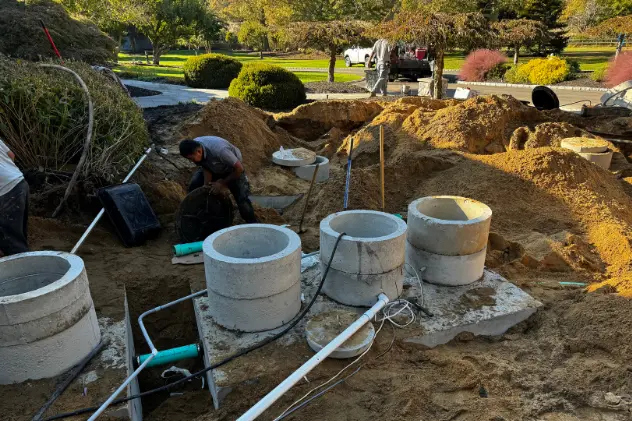
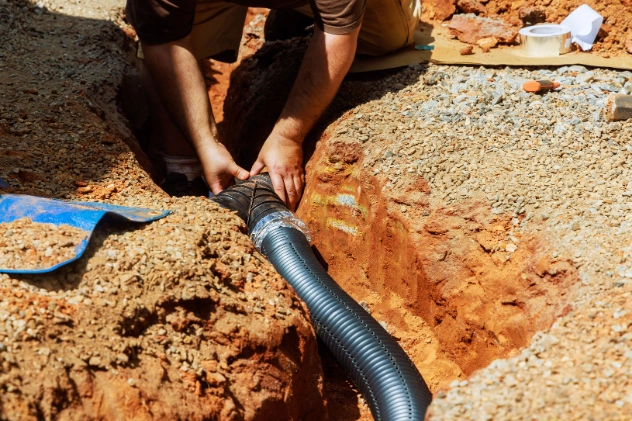
EXPERIENCE YOU TRUST
Environmental Cleaning Service Provider with Proven Results Across Long Island
Clear River Environmental leads Long Island’s environmental services industry with 60+ years of proven expertise and technical excellence. We provide comprehensive environmental remediation services, septic system solutions, and emergency response capabilities that protect residential, commercial, and municipal properties across the region.
Our team maintains the highest industry certifications and operates the latest equipment, including advanced camera inspection systems, precision leak detection technology, and GPS location devices.
We also specialize in complex environmental challenges, including contaminated soil remediation, groundwater protection, and regulatory compliance management. So, our commitment to professional development ensures your property receives the most effective environmental solutions available while maintaining full compliance with all applicable standards and requirements.
Hear from Our Customers
EXCELLENTTrustindex verifies that the original source of the review is Google. Professional friendly excellent service. Highly recommended 👌Posted onTrustindex verifies that the original source of the review is Google. Clear River was phenomenal. Sewer was backing up, we called Clear River, they had someone on site right away to assess the issue. James was their field representative, very professional, and knowledgeable. He completed the septic system maintenance, backfilled the area and left everything neat and clean. Would highly recommend this company.Posted onTrustindex verifies that the original source of the review is Google. Clear River just replaced my cesspool and over flow. They did an amazing job! Highly recommend!!Posted onTrustindex verifies that the original source of the review is Google. I had an excellent experience with Clear River Environmental Service. This was my first time getting my septic system cleaned since purchasing my home, and I wasn’t sure what to expect. Their technician, Jake, was awesome from start to finish. He was professional, friendly, and incredibly knowledgeable. Jake took the time to answer all my questions and explain how my septic system works in a way that was easy to understand. As a first-time homeowner with a septic, that meant a lot. The service was efficient, thorough, and left me feeling confident about how to properly maintain everything moving forward. Highly recommend Clear River Environmental Service—and especially Jake—for anyone looking for reliable, honest, and top-quality septic service.Posted onTrustindex verifies that the original source of the review is Google. To say that I am happy with the service provided by Clear River Environmental and the work performed by Jason would be an understatement. i’ve had a historically rocky relationship with plumbers in the past, so it always gives me a bit of anxiety when I have to call one, but from the first conversation with the young lady that called me till the completion of the job this company was professional, communicative, and a pleasure to work with. When there was a slight hiccup, Rob came back out the next day to ensure everything was working properly. That piece of mind is something that is priceless to know that a company stands behind their work Thank you to clear river environmental for the amazing jobPosted onTrustindex verifies that the original source of the review is Google. Very professional and contacted me by phone prior to arrival. Jake was excellent and answered all my questions regarding the cesspool pumping and chemical application.Posted onTrustindex verifies that the original source of the review is Google. As usual the Clear river crew did a fantastic job. Juan, Jaime, Alex and Manny were prompt, courteous and efficient. 2 thumbs up.Posted onTrustindex verifies that the original source of the review is Google. Called to let me know driver was on his way which was earlier than expected. James showed up and was very professional and answered all my questions. Had more work done than I expected but it was needed and done right. Very happy with the work done. Thanks James! Thanks, Clear River Environmental.
How Our Environmental
Services Near You Work

You Can Call Us 24/7
Quick Response Guaranteed

We Assess Thoroughly
Property Inspection Complete

Plan Gets Created
Custom Environmental Solutions

Work Gets Done
Clear River Environmental
SPECIAL OFFERS
Any Line Cleaning
*the offer can not be combined with any other offer
Cesspool Installation
*the offer can not be combined with any other offer
Full Service Pumping
*the offer can not be combined with any other offer
Emergency Environmental Remediation Services Available 24/7 Daily
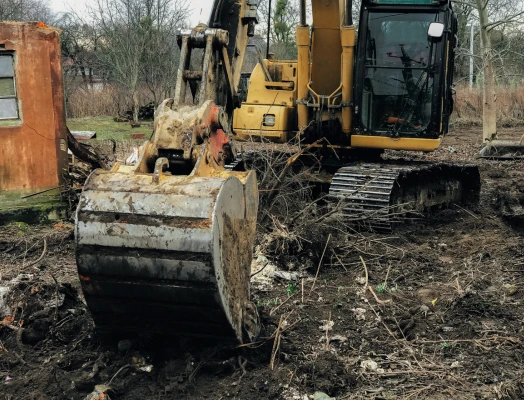
HOW WE PROCEED
Step-by-Step Environmental Cleaning Services That Actually Fix Your Property Problems Permanently

Schedule Service
You reach out to us through a phone call or online form, and we arrange your environmental service appointment immediately.

Receive Details
We send confirmation messages with the technician’s arrival time and service details so you stay fully informed at all times.

Expert Work
Environmental services technician arrives punctually, protect your property, and complete all work while explaining the entire process.

Documentation Provided
You receive a detailed service report with photos, receipts, and maintenance recommendations via email after work completion.

Ongoing Support
We provide maintenance reminders, helpful tips, and priority scheduling as part of our long-term customer care.


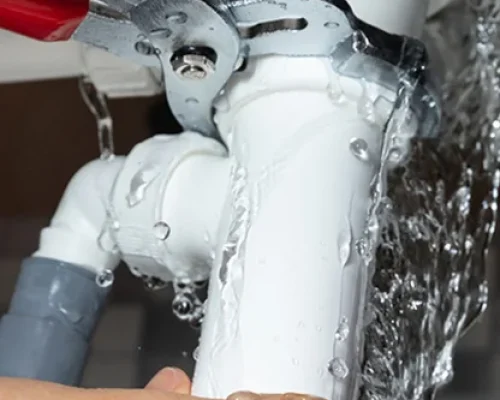
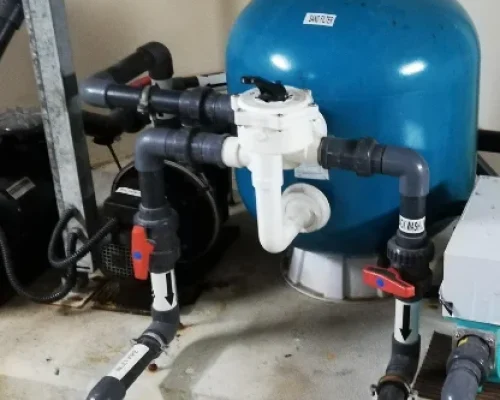
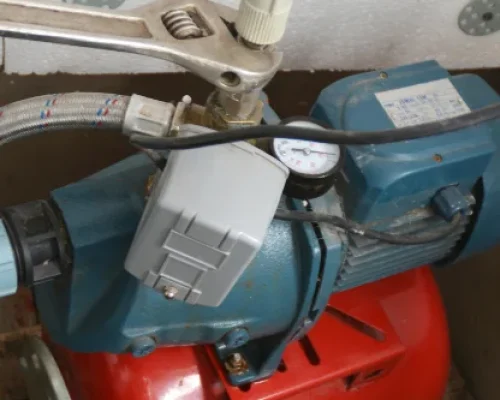
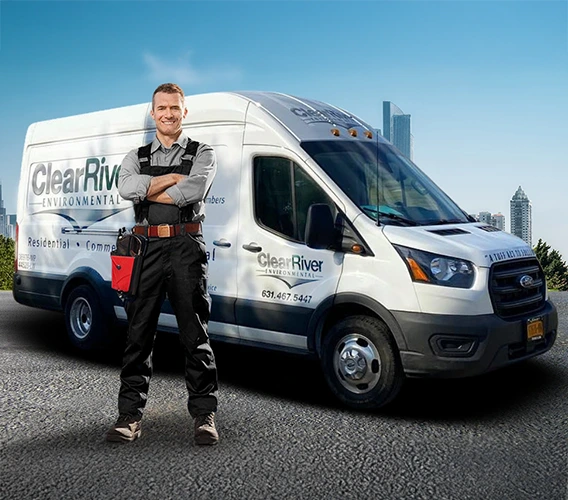
SEE WHY WE’RE
YOUR BEST CHOICE FOR ENVIRONMENTAL CLEANING SERVICES IN LONG ISLAND
Clear River Environmental stands apart from other environmental companies in Long Island because we solve your problems completely while protecting your property investment.
Your sewage backup can't wait until Monday morning. We respond to emergency calls promptly and arrive within two hours to prevent the disaster from spreading.
You know the exact cost before we start any work. Our environmental waste service includes written estimates with guaranteed pricing and absolutely no hidden charges.
Licensed environmental services technician protects your investment with proper techniques. We follow all health department regulations to keep your property compliant and safe.
Professional-grade pumping trucks and inspection cameras find problems that other environmental companies in Long Island miss completely. Advanced tools deliver superior results every time.
Installations
Customers
WHO WE ARE
A FEW OF OUR CLIENTS


